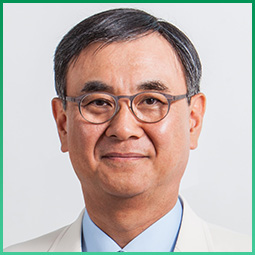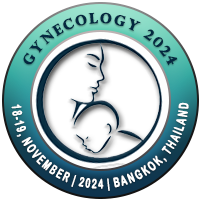
Byung-Koo Yoon
Professor Emeritus at Sungkyunkwan University, Republic of KoreaTitle: Fracture Recurrence in Hip Fracture with Menopausal Hormone Therapy vs Risedronate: A Clinical Trial
Abstract
Introduction: The efficacy of
menopausal hormone therapy (MHT) on secondary fractures and death in postmenopausal
women sustaining hip fracture has been sparsely studied. An open-label,
randomized trial was conducted to examine the effects of risedronate therapy
versus MHT in postmenopausal Korean women.
Materials
and Methods: Among 1,165 women aged 55 years or older with acute,
lower-trauma hip fracture, 281 were recruited and randomly assigned to receive
oral risedronate (35 mg/week) or percutaneous estradiol gel (1.5 mg/day) plus
oral micronized progesterone (100 mg/day) for 4 years. The primary end point was
recurrent fracture and the secondary end points were mortality and bone mineral
density (BMD).
Results: Seventy-four
women (risedronate; 45, MHT; 29) completed the trial (33.2%). Kaplan-Meier
analyses showed no significant differences in fracture recurrence and mortality
between the two groups. The incidence of any new fracture per 100 person-years
(PY) was 8.63 in the risedronate group and 12.86 in the MHT group (P=0.180);
that of clinical fracture was 4.75 and 6.99, respectively (P=0.265); that of asymptomatic
vertebral fracture was 4.87 and 5.58, respectively (P=0.764). The respective
incidence of death per 100 PY was 3.58 and 4.40 (P=0.503). BMD increased
comparably at lumbar spine in both groups. BMD at total hip did not change in
the risedronate group, but increased significantly by 2.8% at 4 years in the
MHT group.
Conclusion: MHT using
percutaneous estradiol gel and oral micronized progesterone might not differ
from risedronate in the prevention of secondary fractures and death among
postmenopausal Korean women with recent hip fractures.
Biography
Byung-Koo Yoon has completed his MD at the age of 25 years and PhD
at the age of 35 from Seoul National University, Republic of Korea. He is the
professor emeritus of Sungkyunkwan University, Republic of Korea. His major area of research was late problems
of ovarian hormone deficiency such as osteoporosis, cardiovascular disease, and
dementia. He completed six randomized controlled trials with menopausal hormone
therapy in Korean women, and served as the presidents of the Korean Society of
Menopause (Nov. 2016~Nov. 2018) and the Korean Society for Bone Mineral
Research (May 2018~April 2019)

